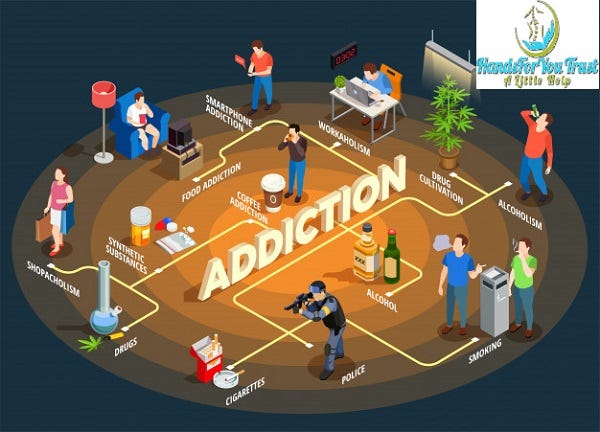All About Drug Rehabilitation
All About Drug Rehabilitation
Blog Article
The Greatest Guide To Drug Rehabilitation
Table of ContentsTop Guidelines Of Drug RehabilitationThe Best Guide To Drug RehabilitationSome Known Questions About Drug Rehabilitation.The Best Guide To Drug RehabilitationWhat Does Drug Rehabilitation Mean?
This involves addressing the entire individual to ensure that all of the underlying domino effects of the addiction are effectively taken care of and remedied. This gives people the tools they require for a complete go back to a satisfied, healthy and balanced, substance-free life. Drug addiction "therapy" is a little a misleading term it suggests that individuals with addictions are "all far better" after they have actually gotten some kind of treatment.Even people with years of successful recuperation need to remain mindful of their capacity for relapse, and they must utilize the devices they discovered in treatment to avoid it. The word "recovery" additionally indicates that a person is being remedied after being mischievous, which follows culture's preconception concerning dependency. Drug Rehabilitation. Component of the healing process is for people with dependencies, and their family members, to find out that dependency refers biology and not morality
Transitioning from physical and mental addiction to a healthy and balanced and pleased way of living is a huge change. It is very important that the actions to medication rehab be properly dealt with during the medicine rehab process. There are four phases of addiction healing: Addiction assessment is a specifically important component of the rehab process.
This is component of the underlying psychology of dependency, and it reinforced by concerns of arrest for property and judgment from family members and pals. The analysis process calls for getting count on and breaking via that deceptive nature. The private needs to recognize which substances were utilized and the extent of their compound usage.
The Buzz on Drug Rehabilitation

For lots of people with addictions, fear of withdrawal is a major barrier to escaping their addiction, and that worry keeps them from even trying. Withdrawal and drug detoxification do not have to be a dreadful experience. By taking part in a clinical detoxification program, people can survive the experience securely and pleasantly.
This is where the underlying root causes of addiction are attended to. For the majority of people with substance addiction, their substance use is no more about obtaining high. Rather, it ended up being a recurring, daily procedure of preventing withdrawal symptoms and getting away from their truth. Medication rehab is the procedure where the deep concerns around the dependency are recognized and addressed.
Excitement About Drug Rehabilitation
Instead, it can use this link be claimed that rehabilitation is the procedure of discovery, while what takes place afterward is healing. The addicted mind usually starts to think especially after a period of time in abstinence that it is okay to attempt drinking or making use of substances again. This seldom works, and the substantial bulk of people that try drinking or utilizing medications again will rapidly end this article up where they were previously.

Sober living houses are a particularly reliable strategy to aftercare when a person is released from rehabilitation. Individuals and their families need to talk about these choices with their counselors while still in rehab. There are various kinds of therapy for dependency, based on the level of care supplied. When picking the degree of therapy, the selection should be based on what will supply the private the very best possibility of success in recuperation out what the specific wishes to do.
This is a bad mix, as it moves lots of people to believe that they can quit utilizing medicines or alcohol consumption by themselves. Because of this, they might be unwilling to see and confess that they call for a higher degree of care, such as inpatient rehabilitation. Detoxification from a material is not the same as treatment for substance dependency.
The Definitive Guide for Drug Rehabilitation
Throughout the process of drug detox, people's minds are muddled and they really feel literally and mentally ill. They are not receptive to any kind of kind of counseling or therapy up until their minds clear and they are really feeling better. Even though medical detox makes the process a lot less complicated, it is best to initial concentrate on obtaining with the whole detoxification process before taking further steps.
Like inpatient treatment, domestic treatment offers the therapeutic result of getting rid of individuals from their useless way of living and atmosphere and placing them in safe, healthy environments. This enables them to reorient their lives and assumed procedures while focusing on distraction-free recuperation.
People get healing services on-site throughout the day, but go home or to a sober living center at evening. The intensity of the daytime therapy will depend on private demands and the programs available at Website the outpatient center. A lot of individuals with serious addiction will likely have better results in inpatient therapy and rehabilitation.
Unknown Facts About Drug Rehabilitation
Lasting residential treatment programs usually utilize a healing strategy recognized as the healing area (TC). This is a technique to re-socializing people whose addiction has actually seriously influenced their ability to fit right into society. These include people with major criminal habits, individuals that are homeless, teens and individuals with significant psychological wellness problems.
Report this page